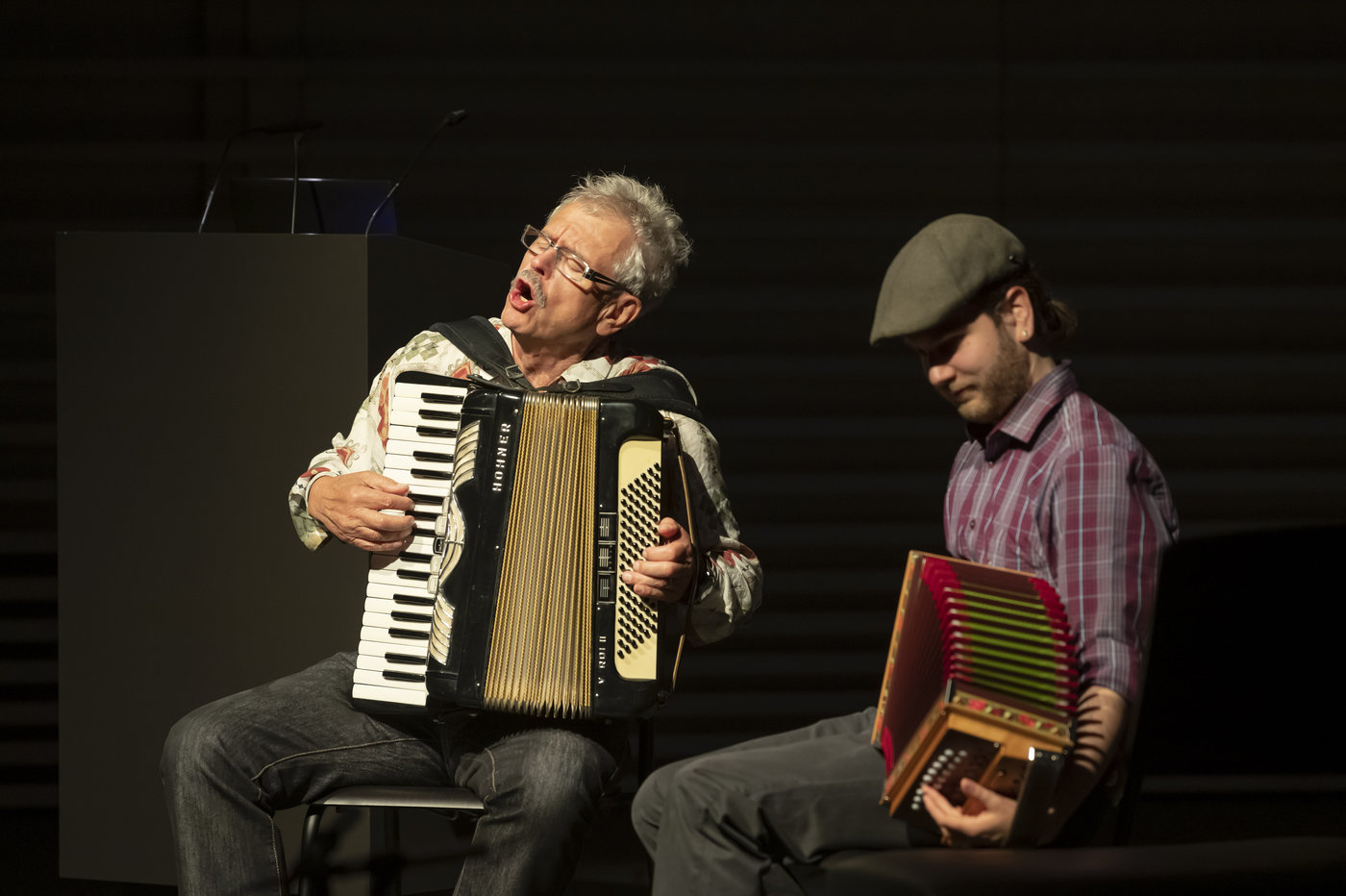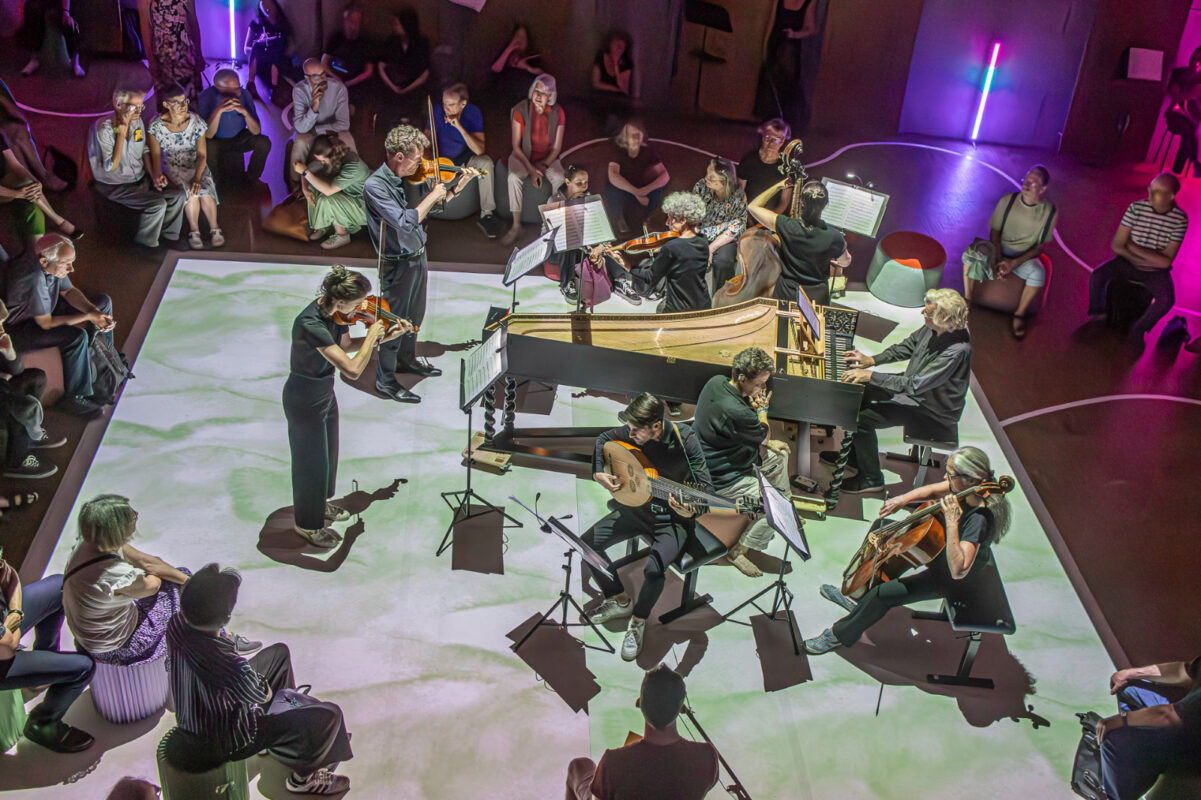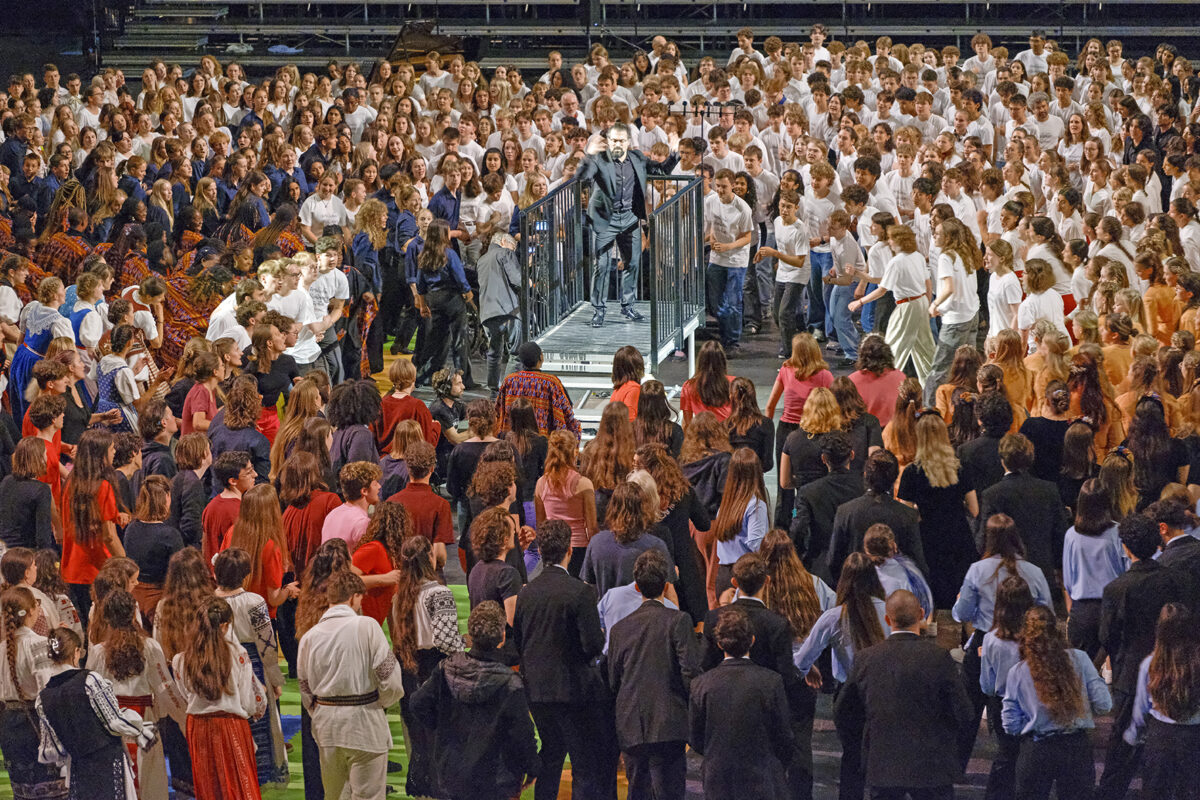Countering Parkinson's symptoms with music
Dawn Rose and her team at the Lucerne School of Music presented their latest research findings in a concert: The "Playlist for Parkinson's" is the building block of an international collaboration.

Music can be an effective means of counteracting neurological impairments. Lucerne stands out in this respect with pioneering projects. The professional association and organization for those affected Aphasia Suisse founded the first Swiss aphasia choir there 15 years ago. People with aphasia have lost all or part of their speech as a result of a stroke, tumor or accident. However, they are still able to sing. The communal experience, which also serves to empower them, makes a major contribution to the mental health of those affected. There are now ten aphasia choirs and even an aphasia yodeling choir in Switzerland.
Another project is currently being steered by a lively working group led by the British music psychologist Dawn Rose from the Lucerne School of Music (HSLU-M). She is researching ways of using music to make everyday life easier for people with Parkinson's disease. A multilingual consultation study co-financed by Parkinson's Switzerland on the use of music by those affected in Switzerland is planned. A web platform called "Playlist for Parkinson's", which is currently being developed, will also provide them with resources on music use.
Technology from the film industry
The development of a measurement protocol at the HSLU-M is an important scientific component of the project. It enables quantitative clinical tests on a pressure-sensitive gait mat and with markers, with which movements accompanied by music can be precisely recorded and analyzed. The method used originates from film production. There, it is used to transfer the movements of people to animated characters. The core is a detailed four-dimensional model of a person, including the way they move. On the basis of these investigations, the Lucerne research team has formulated an intervention protocol designed to optimize music-assisted neurorehabilitation for people with Parkinson's disease. It is being tested in Lucerne, Lugano and London. The project partners in Switzerland are the Lucerne Cantonal Hospital and clinics and neurocenters in Ticino.
A Playlist for Parkinson's has already been realized by the Lucerne project partner, the Royal Northern College of Music (RNCM). It is based on research by Michelle Phillips from the RNCM, Dawn Rose from the Lucerne University of Applied Sciences and Arts, Ellen Poliakoff from the University of Manchester and Will Young from the University of Exeter. The list was compiled in collaboration with people with Parkinson's who told us how they use music, what it means to them and how it can be helpful. The list covers different areas of use, ranging from "music to make me happy" to "music that gets me going".
Playlist in concert
Two concerts - one at the Royal Northern College of Music in 2022 and one in Lucerne on May 9 - showed what such a playlist can look like and what benefits it has, with music students arranging and interpreting tracks from the list in original ways. The result was a very unusual and inspiring mix of music that went far beyond the Parkinson's theme. Titles by U2, Ennio Morricone, Sydney Bechet, Giuseppe Verdi, Creedence Clearwater Revival, Antonio Vivaldi, Ludovico Einaudi and Swiss folk music stood side by side as a matter of course. The musical contributions were complemented by interviews with Parkinson's sufferers, some of whom even contributed to the concert by playing music themselves.
Students of the HSLU-M arranged for the concert, for example, Verdi's Prisoners' choir and Ennio Morricone's film music from the spaghetti western Play me the song of death for string quartet and solo soprano. A jazz-rock-pop band switched virtuosically from the U2 track Beautiful Day about John Fogertys Proud Mary to Bechets Petite Fleur. Accordionist Toni Scherrer, who himself suffers from Parkinson's disease, proved to be an extremely charismatic entertainer together with folk music student Dominik Furger on the Schwyzerörgeli. The whole hall sang along to the folk earworm Ramseiers like go graze and at the end of the whole concert he even let himself be invited to the dedicated Country Roads-karaoke.
Listen to what inspires
Toni Scherrer also talked about how making music helps him to deal with the symptoms of the disease. According to Dawn Rose, areas of the brain in which music is processed form islands of integrity, especially in the early stages of the disease. In Scherrer's experience, tremors and balance problems disappear while he is making music and sometimes only return hours or even days later.
The playlist can have an effect far beyond the Parkinson's issue. In music psychology, the term "guilty pleasure" refers to the feelings of guilt that can creep up on you when you enjoy music that does not seem to correspond to the intellectual level you ascribe to yourself - a legacy of the educated middle classes. The musical approach to the illness therefore also has an emancipatory character. Whatever I like to listen to and inspires me: That's fine.








